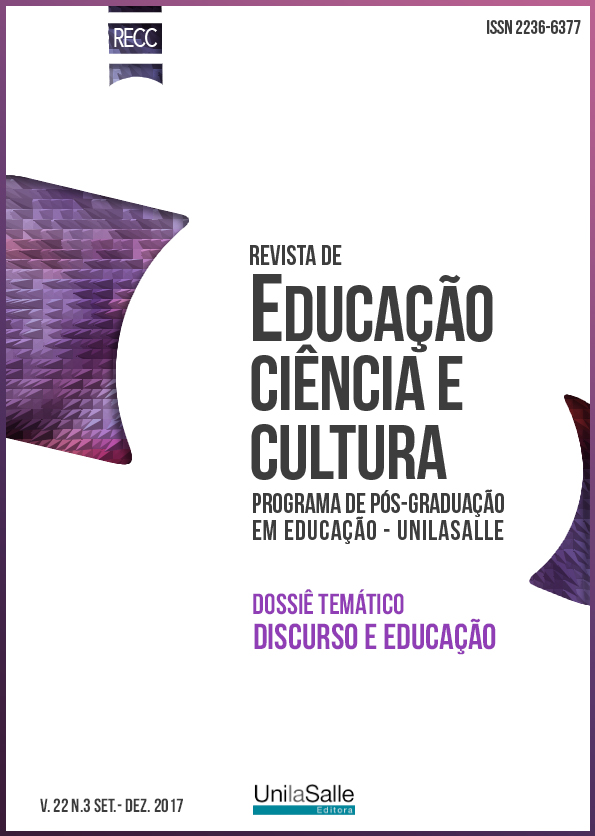Coming out in the classroom: still an occupational hazard?
DOI:
https://doi.org/10.18316/recc.v22i3.3963Palavras-chave:
Teacher Sexual Orientation, Teacher Credibility.Resumo
In 2002, Russ, Simonds, and Hunt reported that coming out in the classroom was hazardous to gay instructors in the United States. We replicated their study in the same medium-sized North American university with a sample of 222 college students (71.7% White, 53.2% women, mean age = 19.66) who listened to a talk by a male speaker. Unknown to these students, we experimentally manipulated the sexual orientation of the speaker. In one section of a general education course, the speaker mentioned three times in passing the name of his same-sex partner (gay condition). In another section of the same course, the speaker mentioned three times the name of his other-sex partner (heterosexual condition). Immediately after the talk, students evaluated the speaker. Analyses using t-tests on teacher credibility ratings showed that students consistently rated the speaker in the heterosexual condition more positively than the speaker in the gay condition, which mirror Russ et al.’s findings published 15 years earlier. Chi-square analyses on the themes derived from the written comments showed mixed results. Students perceived the gay speaker as having “poor speech” skills, but they also perceived him to be more “honest and open” than the heterosexual speaker. Implications are discussed.
Downloads
Publicado
Edição
Seção
Licença
Autores que submetem seus manuscritos para serem publicados nesta revista concordam com os seguintes termos:
Autores mantém os direitos autorais e concedem à revista o direito de primeira publicação, com o trabalho simultaneamente licenciado sob a Licença Creative Commons Attribution que permite o compartilhamento do trabalho com reconhecimento da autoria e publicação inicial nesta revista.
- Em virtude dos artigos aparecerem nesta revista de acesso público, os artigos são de uso gratuito, com atribuições próprias, em aplicações educacionais e não-comerciais.
O Periódico Revista de Educação, Ciência e Cultura em http://www.revistas.unilasalle.edu.br/index.php/Educacao foi licenciada com uma Licença Creative Commons - Atribuição - Uso Não Comercial 3.0 Não Adaptada.


